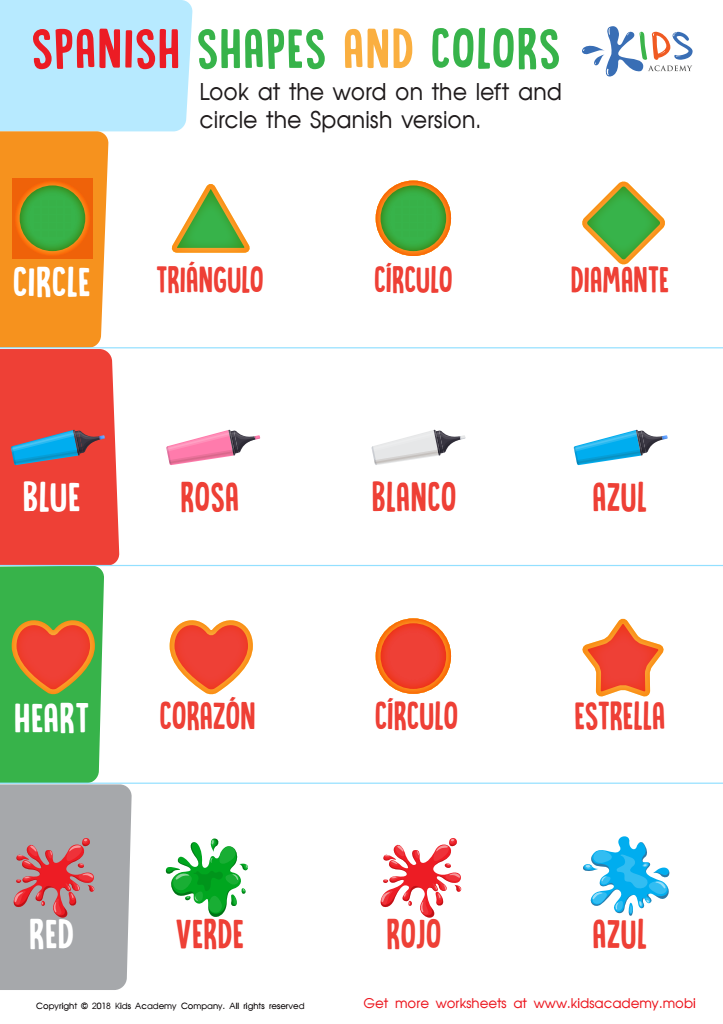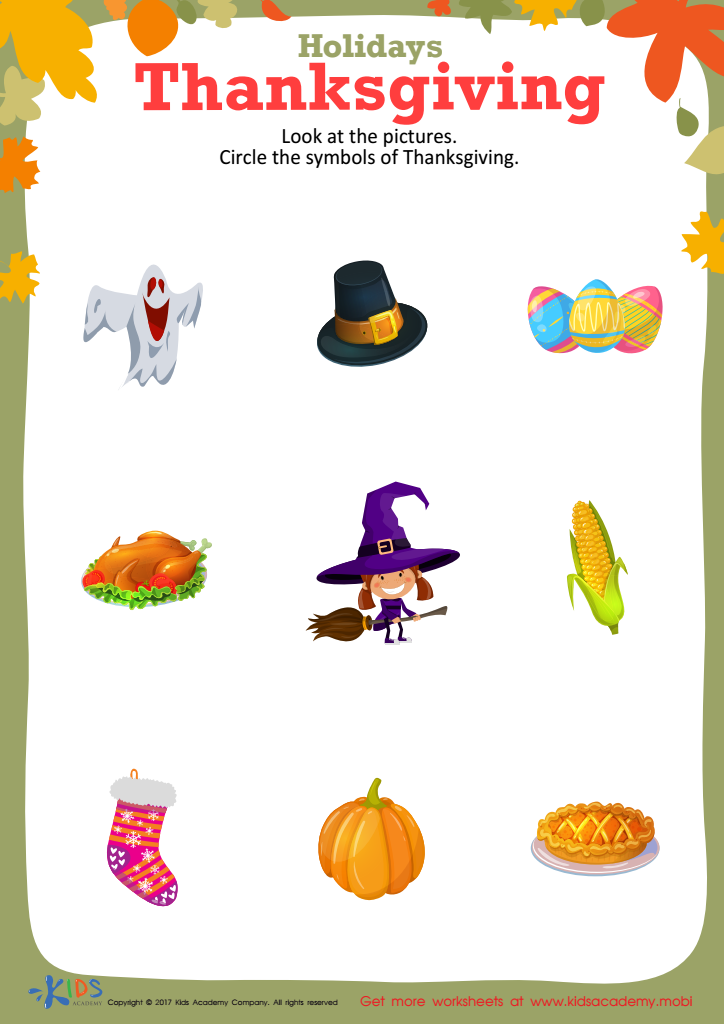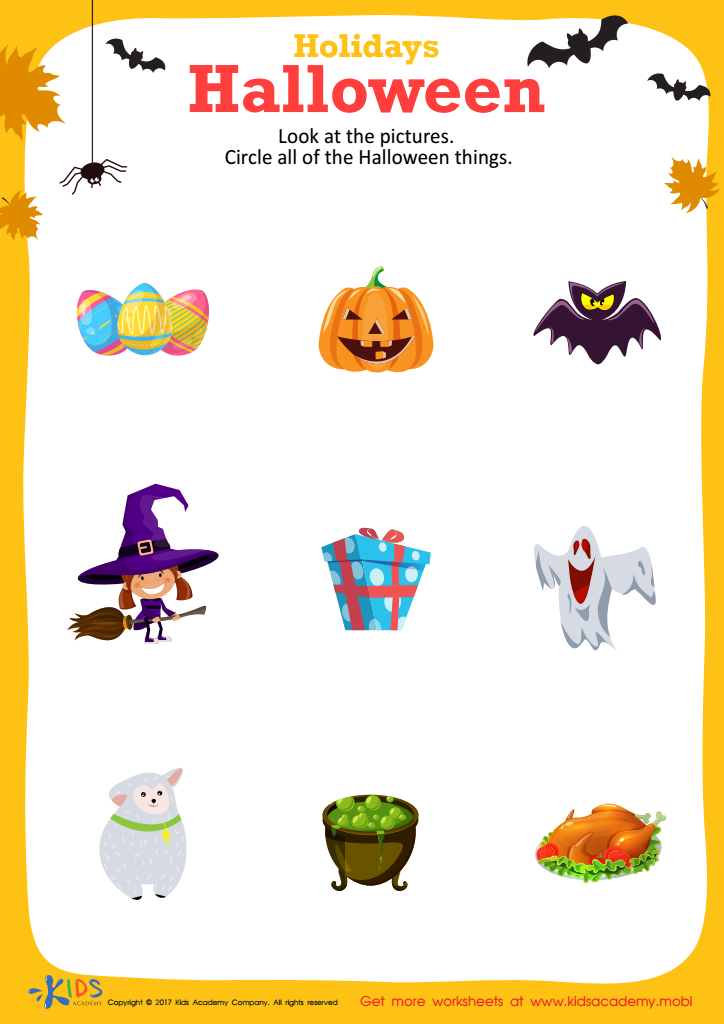Reading comprehension Normal History Worksheets for Ages 3-4
3 filtered results
-
From - To
Explore our engaging Reading Comprehension Normal History Worksheets for Ages 3-4, designed to cultivate a love for learning in young minds. These worksheets introduce basic historical concepts through simple texts and vibrant visuals, making it easy for little learners to grasp essential ideas. Each activity encourages critical thinking and enhances verbal skills while connecting history to their everyday lives. Parents and educators will appreciate the easy-to-follow instructions, allowing for flexible learning experiences. With a focus on fun and discovery, these resources help nurture curiosity and instill foundational reading comprehension skills early on. Start your child's educational journey today!


Spanish Shapes and Colors Worksheet


Thanksgiving Holiday Printable


Halloween Holiday Worksheet
Reading comprehension is a crucial skill that underpins a child’s overall educational success. For children ages 3-4, this development begins with early exposure to stories, language, and books. Parents and teachers should care about a child's reading comprehension during these formative years because it fosters cognitive development, enhances vocabulary, and encourages critical thinking.
At this age, children learn to make connections between words and their meanings, understand narrative structures, and engage with illustrations. This foundational knowledge sets the stage for more complex literacy skills in later years. When caregivers read aloud and engage children in conversations about stories, they promote not just understanding but also a love for reading, which can spark lifelong learning.
Additionally, strong reading comprehension skills help children navigate their social world. They learn empathy by understanding different perspectives in narratives and improve their communication skills through discussions about the characters and events.
By prioritizing reading comprehension experiences for ages 3-4, parents and teachers are investing in a child’s academic journey and social-emotional development—a crucial preparation for school readiness and beyond. This early attention can lead to improved outcomes in literacy, leading to greater confidence and success as they progress in their education.
 Assign to My Students
Assign to My Students















